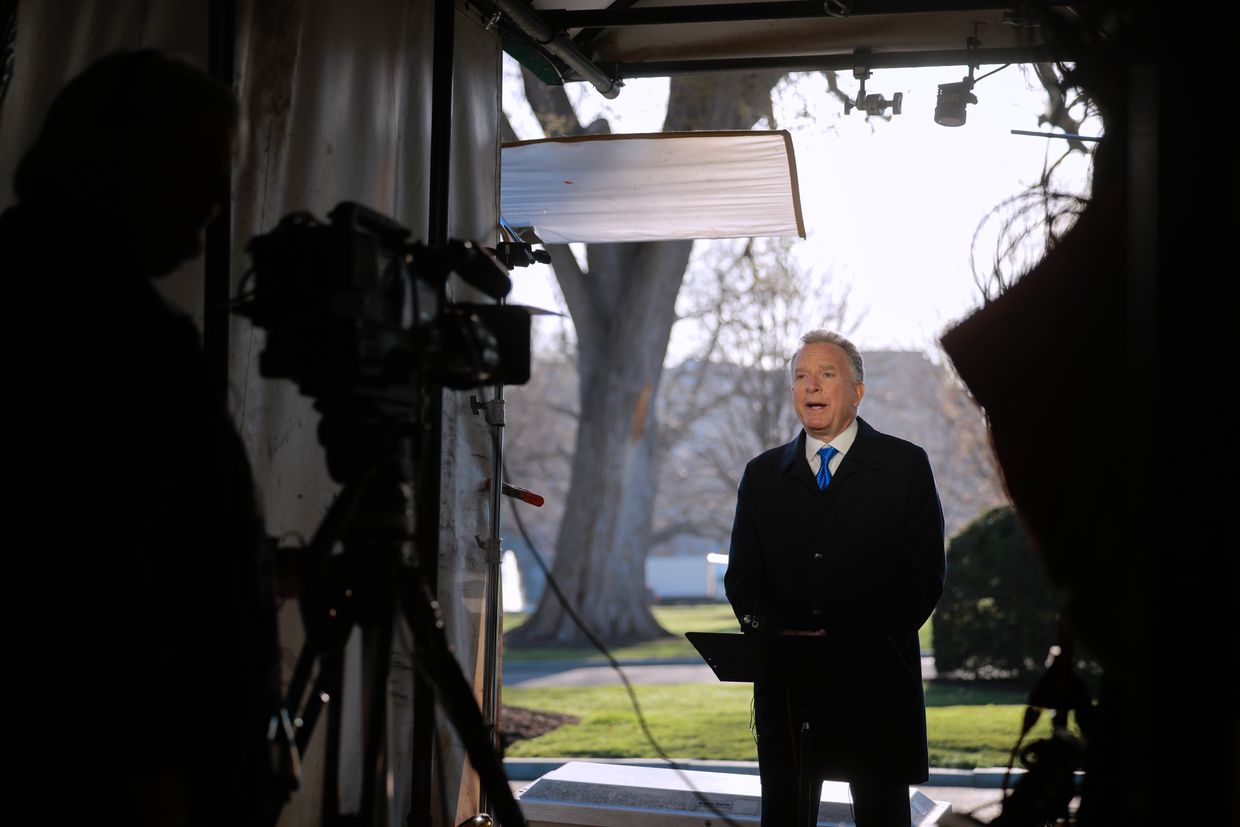US envoy Witkoff proposes giving Russia 'ownership' of Ukrainian regions, Reuters reports

U.S. Special Envoy Steve Witkoff has told President Donald Trump that giving Moscow "ownership" of four occupied Ukrainian regions would be the fastest way to achieve a ceasefire, Reuters reported on April 11, citing two unnamed U.S. officials and five other undisclosed sources.
According to Reuters, Witkoff conveyed this proposal to U.S. President Donald Trump after meeting with Russian envoy Kirill Dmitriev in Washington in early April.
The news came as Witkoff met Russian President Vladimir Putin in St. Petersburg to discuss a possible path toward a settlement in Ukraine.
According to Reuters's sources, Trump administration officials are increasingly divided on how to break the deadlock in Russia's war against Ukraine, with Witkoff and U.S. Special Envoy Keith Kellogg disagreeing on the best course forward.
Kellogg has argued that Ukraine would never agree to unilaterally cede total ownership of the territories to Russia, Reuters reported.
In a March interview with American far-right political commentator Tucker Carlson, Witkoff openly parroted Russian propaganda regarding Ukraine's occupied territories.
Witkoff claimed that the majority of people in Ukraine's Russian-occupied territories had participated in referendums and "indicated that they want to be under Russian rule."
"Witkoff must go, and (U.S. Secretary of State Marco) Rubio must take his place," according to a March 26 letter from Eric Levine, a major Republican donor, cited by Reuters. The letter, sent to a group including Republican donors, was written after the Carlson interview and criticized Witkoff for praising Putin.
Some Republican lawmakers were concerned about Witkoff's pro-Russia stance in the Carlson interview and called Rubio and National Security Adviser Mike Waltz to complain, according to one of the sources.
In the interview, Witkoff referred to the Russian sham vote on the annexation of Ukraine's Luhansk, Donetsk, Zaporizhzhia, and Kherson oblasts held in September 2022.
The hastily organized "referendums" were held at gunpoint in the Russian-controlled parts of the regions, with widespread voter intimidation and soldiers going door to door with ballot boxes.
The so-called "referendums" contradicted international, Ukrainian and even Russian law and were recognized only by two countries — Russia and North Korea, both of which have little knowledge of free elections.
Moscow illegally declared the annexation of Crimea in 2014, as well as the partially occupied Donetsk, Luhansk, Zaporizhzhia, and Kherson oblasts eight years later.
The Trump administration has already signaled it expects Kyiv to make territorial concessions as part of a possible peace deal, calling a return to Ukraine's pre-2014 borders "unrealistic."












